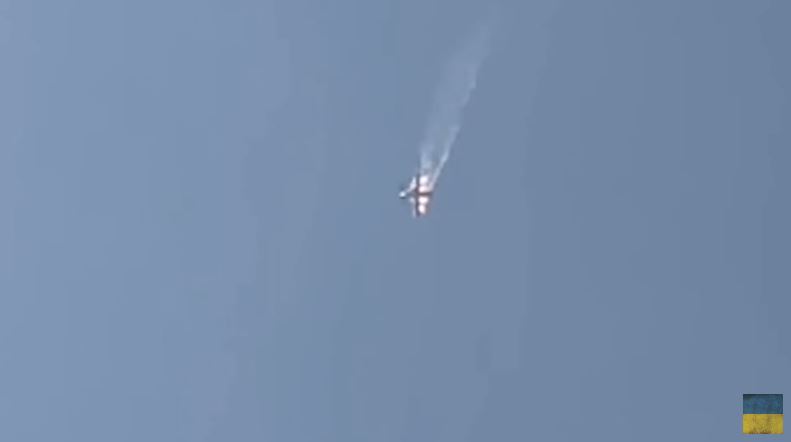Today, the biggest news comes from the South Caucasus.
Here, Russia's anger has erupted after Azerbaijan, long dismissed as a small neutral state, emerged as one of its most disruptive rivals.
From gas deals to arms shipments, Baku is quietly dismantling Russia's regional leverage, and the Kremlin's response has turned openly hostile, with a missile strike on the Azerbaijani embassy in Kyiv marking a dangerous new stage in their confrontation.

Baku rejects Moscow's claims of accidental strike
The attack happened during a nighttime bombardment on Ukrainian targets when an Iskander-type missile hit the Azerbaijani diplomatic compound. Moscow claimed it was an accident, but in Baku the strike was seen as deliberate.
The Azerbaijani Foreign Ministry summoned Russia's ambassador and handed him a formal protest, while President Ilham Aliyev called Ukraine's Volodymyr Zelensky to condemn what he called a targeted strike.
State media in Baku framed the incident as a direct assault on Azerbaijan's sovereignty. For Moscow, this was an outburst, with frustration spilling into action against a country it once treated as a dependent partner.
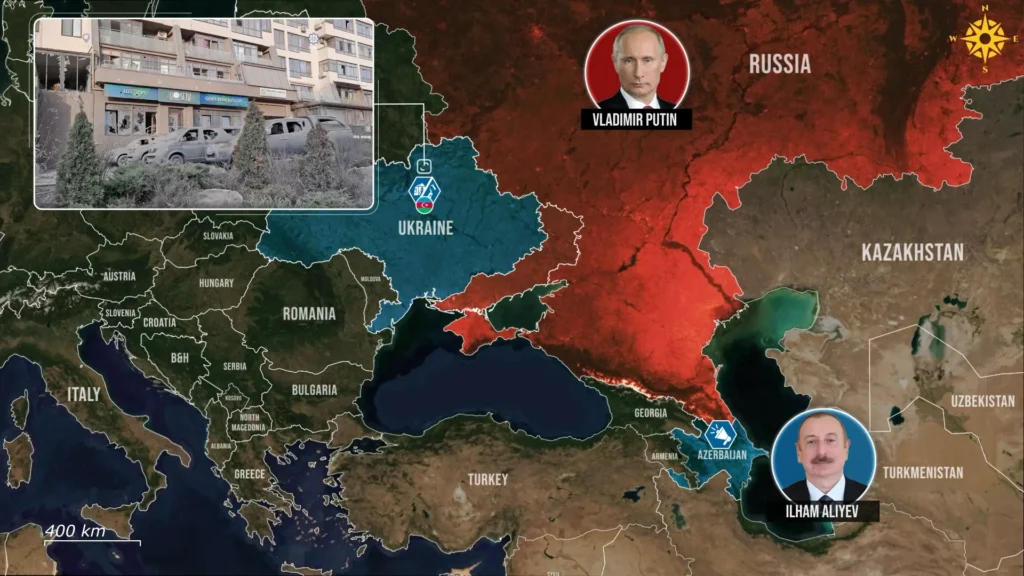
Covert arms pipeline runs through Africa
What triggered that reaction runs deeper than a single embassy, as in recent weeks, reports have confirmed that Azerbaijan has quietly sent Su-22 fighter jets to Ukraine through a covert logistics chain running across Türkiye, Sudan, and Germany.
The aircraft originates from Cihaz, a defense enterprise under Azerbaijan's Ministry of Defense industry, which produces weapons and munitions under Turkish license. Shipments are re-labeled as humanitarian aid in Gaziantep, shipped to Port Sudan, and then moved to Europe before reaching Ukraine.
The same routes that once carried Wagner-linked arms now serve as Ukraine's supply network.

For Russia, the embarrassment is twofold, as it loses control over its African sphere and faces the reality that even its smaller neighbors are now contributing to Kyiv's war effort.

Azerbaijan breaks Gazprom's pipeline monopoly
The other reason for Moscow's reaction lies in energy, as Ukraine has received its first Azerbaijani gas through the Trans-Balkan pipeline, a route once dominated by Gazprom.
The volumes are small, but the symbolism is enormous. The deal between Naftogaz and Socar Energy Ukraine marks Kyiv's first alternative source since cutting all Russian imports. Naftogaz chief Serhi Koretski described it as a strategic step in the start of a long-term cooperation.
Trending Now
For Moscow, the move signals that the Turkic bloc of Türkiye and Azerbaijan now provides what Russia once controlled, that being fuel for Europe's east and resilience for Ukraine's winter.
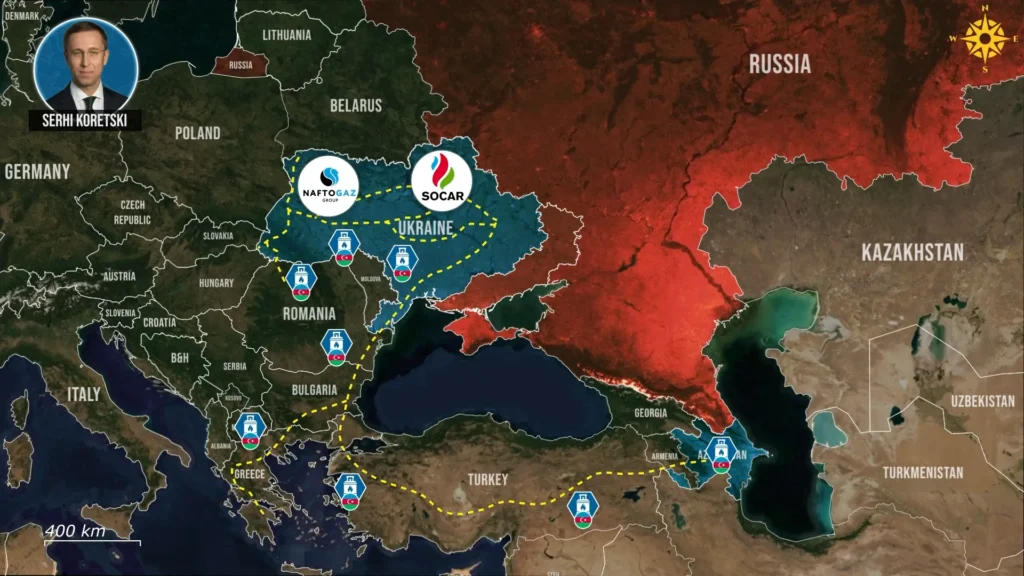
Baku replaces Moscow across European energy markets
Across Europe, the pattern is repeating, as Serbia, historically close to Moscow, is preparing new gas contracts with Baku while US sanctions push Gazprom out of local companies.
The European Union has promoted Azerbaijani energy as a substitute for Russian supply, reinforcing a broader shift where Türkiye acts as the intermediary and Azerbaijan as the new donor. Even limited contracts limit Russia's influence in the Balkans, and every new pipeline strengthens the idea that Baku, not Moscow, now controls the region's energy future.
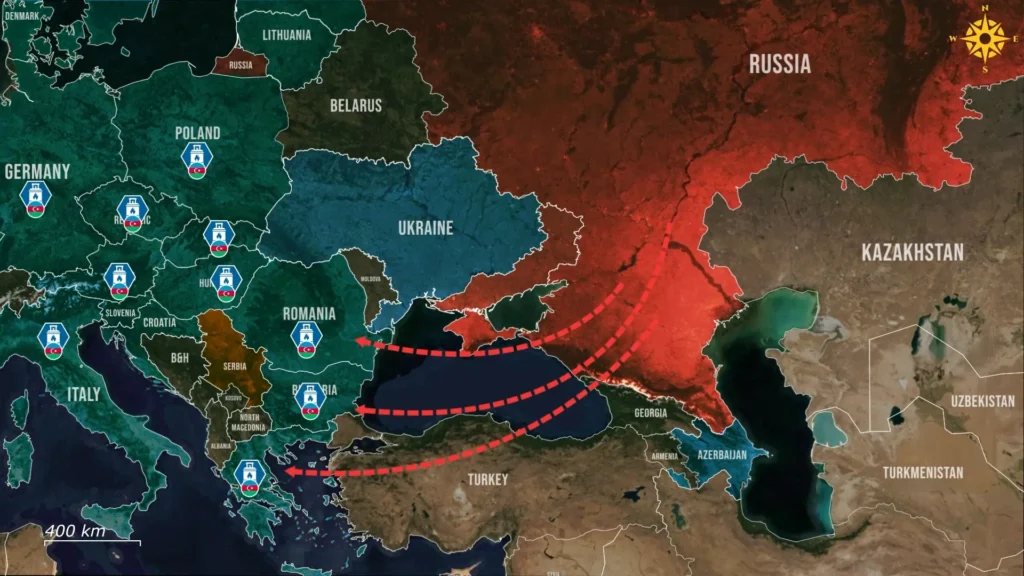
Zangezur Corridor reshapes Eurasian transit
Back in the South Caucasus, the geopolitical reversal is almost complete, as the Zangezur Corridor, linking Azerbaijan through Armenia to Türkiye, is reshaping trade routes between Europe and Asia without crossing Russian territory.
The project followed Azerbaijan's decisive offensive in Nagorno-Karabakh, which ended the war and exposed Moscow's failure as a peacekeeper. Once seen as the region's stabilizing force, Russia now watches from the sidelines as former clients rewrite the map around it.
The corridor is not just a road, it is the physical proof that Moscow's monopoly over Eurasian transit is finished.
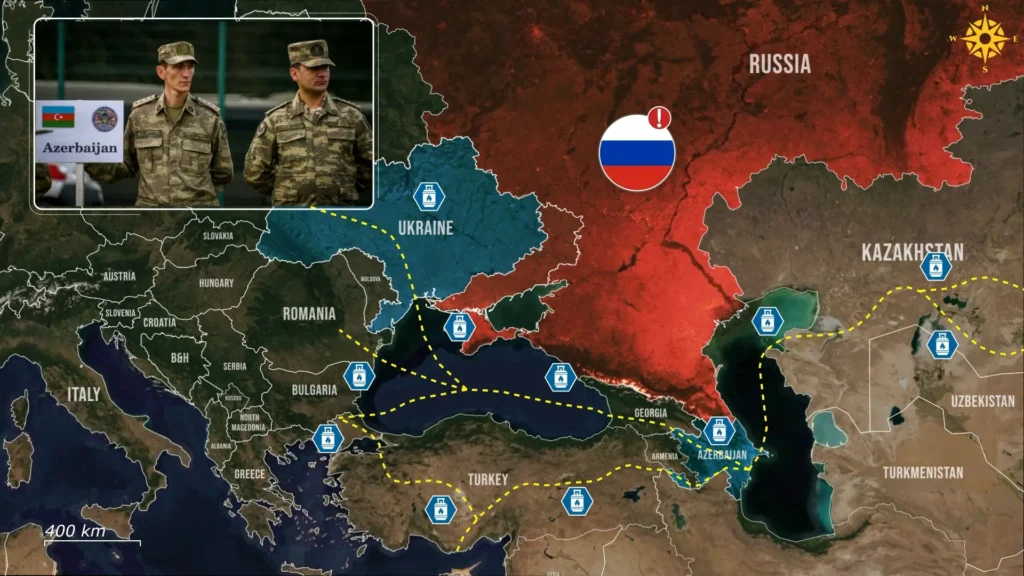
Strategic damage from an unlikely rival
Overall, Azerbaijan has become the smallest state to inflict the deepest strategic damage on Russia.
Through a combination of quiet arms deliveries, gas deals, and bold regional infrastructure, Baku is replacing Moscow's role step by step, in Ukraine's airspace, in Europe's energy grid, and across the Caucasus.
The strike on its embassy will not intimidate Azerbaijan, as it only exposes a desperate Russia lashing out as its influence crumbles from within its own neighborhood.
In our regular frontline report, we pair up with the military blogger Reporting from Ukraine to keep you informed about what is happening on the battlefield in the Russo-Ukrainian war.




